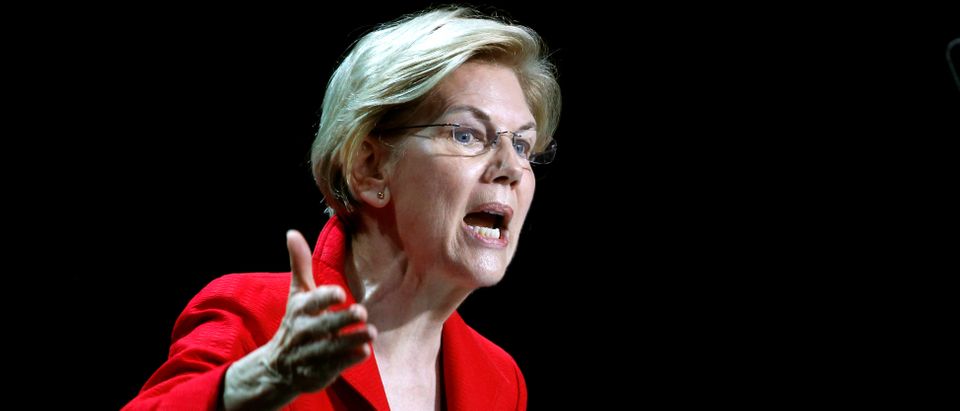As Elizabeth Warren pursues the Democratic presidential nomination, voters should ask what she’d do as president and how she’d govern. The first question involves policy; the second question involves her temperament and political skills. Warren thinks today that policy matters most; recent history suggests otherwise. Voters prefer candidates who connect with them viscerally and emotionally, not policy wonks.
Follow Warren around the country. When asked a policy question, she often responds: “I’ve got a plan for that!” Health care, gun control, the environment, the economy, China: she’s got detailed proposals for every issue under the sun. We’ll surely hear about most of these issues between now and November 2020, but Americans will ultimately judge the candidates by how well they connect with voters.
Modern presidential campaigns are primarily about engaging voters personally. Consider how Joe Biden’s decades of domestic- and foreign-policy expertise are being sidelined by a growing focus on his age and his gaffes. His campaign team keeps reminding voters that he’s the same affable “Uncle Joe” who can relate to average citizens.
Fact Sheets and policy details do not make a president. I learned this lesson as a policy adviser in the George H.W. Bush White House. As the 1992 election grew closer, the White House and Bush campaign issued Fact Sheets on every conceivable domestic-policy topic to no avail. Even Bush’s skillful Persian Gulf War didn’t secure his reelection.
Bush deployed some 500,000 American troops halfway around the world and personally forged a 35-nation coalition that repelled Iraqi aggression. In February 1991, after routing Saddam Hussein and liberating Kuwait, Bush enjoyed 90 percent public approval. In November 1992, however, he lost reelection to Bill Clinton (then a relatively unknown governor from a small southern state) with only 38 percent of the popular vote.
In his 1988 campaign, Bush pledged to be an “education president.” He fulfilled this pledge by meeting with 49 governors in Charlottesville, Virginia, the next year and launching a national education goals initiative. Bush also reneged on his “read my lips, no new taxes!” pledge. That decision alienated the Reagan base that Bush had inherited, but what really doomed his reelection was a growing perception that he was out of touch with average Americans.
Bush was late in addressing the 1992 Los Angeles riots and then looked befuddled by a supermarket checkout scanner. Glancing at his watch (with its preppy striped-cloth watchband) midway through the August 1992 Richmond, Virginia, debate with Bill Clinton didn’t help either. Bush seemed bored, like he wanted to be elsewhere. Wasn’t winning the Persian Gulf War sufficient for reelection?
Warren should study carefully the post-Watergate presidential elections where the winners connected readily with average Americans.
Jimmy Carter’s folksy innocence proved the perfect foil to Watergate and Gerald Ford’s subsequent pardon of Richard Nixon.
Ronald Reagan was short on policy but long on values. The nation had tired of Carter’s weak economy and his Iran hostage quagmire.
George H.W. Bush connected in 1988 by essentially promising Reagan’s third term, but 1992 voters concluded that he lacked Reagan’s affability and conviction.
Bill Clinton projected youth and energy in contrast to Bush’s New England noblesse oblige and listless reelection efforts.
George W. Bush appeared more genuine than Al Gore, who consulted an outside adviser to tell him what to wear while campaigning. W. also campaigned more like the two-term Reagan than his one-term father.
Barack Obama embodied an important American ideal: electing the first African-American president. His two autobiographies were less about policy and more about his appealing personal circumstances.
Donald Trump connected primarily with Americans who’d lost faith in the global and domestic elites who were blamed for the recent Great Recession. Trump connected with just enough people in just enough places to capture an Electoral College majority.
Reagan’s approach was interesting. Six words summarized his agenda: lower taxes, less government, stronger defense. Try that exercise with his successors and would-be successors. MAGA, again, perhaps? We’ll see.
Couples in the dating world often cite the “chemistry” that makes their relationships work. Like Supreme Court Justice Potter Stewart once said about pornography, defining “chemistry” in advance is often hard. It’s elusive, but you know it when you see it and feel it.
Warren would make an outstanding assistant to the president for domestic policy. It’s undecided whether her strong policy skills are what American’s want. Having a plan is not enough: chemistry ultimately matters more.
Charles Kolb was deputy assistant to the president for domestic policy in the George H.W. Bush White House from 1990-1992. From 1997-2012, he was president of the nonpartisan, business-led think tank, the Committee for Economic Development.
The views and opinions expressed in this commentary are those of the author and do not reflect the official position of The Daily Caller.


